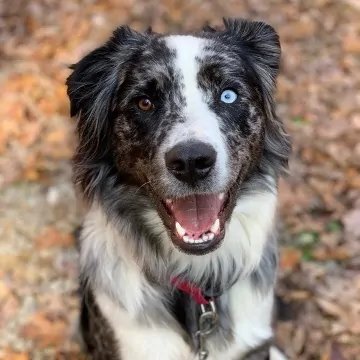
Depression in dogs is tricky to diagnose definitively. A good place to start is by ruling out all potential diseases and illnesses. We also check with pet owners for potential reasons for depression like a littermate passing away, owners being sick, a change in location, etc.
There is no denying that these animals' moods can occasionally drop below what they typically display; this may cause them to act differently as well as feel more depressed than usual. Keeping these guidelines in mind, it's crucial to attend to your pet's mental and emotional requirements just as you would their physical ones. Here are some details concerning canine depression and suggestions for how to look after your pet's mental wellbeing.
While the symptoms of depression in humans are very well understood, it is unclear if dogs experience the same emotions. Though more research must be done on this subject before any firm conclusions can be drawn, several studies have indicated that when dog participants were exposed to depressing images or noises, their heart rates elevated, and they had symptoms like those reported during clinical episodes of sorrow.
Just like us, dogs have different emotions from time to time. When anything recent has caused them to be upset or stressed out, they may occasionally appear melancholy and disappointed; nevertheless, other times, they may appear enthusiastic and happy-go-lucky as if nothing is wrong at all!
When compared to human depressive symptoms, those in dogs are typically more erratic. A dog may occasionally struggle with their mental or emotional well-being, but this is less frequent than human-based illnesses.
Although the exact causes of dog depression are still being investigated, it is believed that some form of change to their environment may be the initial cause. These changes consist of:
Dog depression can manifest itself in a variety of ways. Among the most typical signs and symptoms include:
Helping your pup through the tough times is important, and they won't always feel like giving up. Luckily there are ways to get them back on their feet! The following list includes some of our favorites:
If your dog continually displays any of the above symptoms, or any other symptoms that you're concerned about, it’s important to seek veterinary care right away.
For depression or any other mental health disorder, early therapy is recommended. It's important to seek care as soon as you can, even though these symptoms typically don't necessitate an emergency visit (unless your pet is obviously sick). The sooner you get help, the more likely it will be to be successful in resolving these issues and preventing further ones from becoming worse than what was initially diagnosed.
When you come to see us, the first thing we'll do is rule out any underlying medical conditions or physical pain. Assessing your dog's comprehensive medical history and inquiries about their daily routine and environment are the first steps. If necessary, other diagnostic testing, including blood work, may also be required.
Your veterinarian can provide you with advice on how to make your dog feel better and more confident if they have detected depression in your pet. Additionally, it may be recommended that your pet be put on a trial of antidepressant medication, as needed.
It's important for pet owners to be aware of the signs of depression that their dog can exhibit. Do not be reluctant to seek professional assistance if you notice your dog displaying any weird behaviors or emotions; doing so could save both of you from experiencing a more serious ailment.
Call My Pets Wellness right away if you suspect your dog may be depressed or is displaying a new symptom. We'll work to restore their health! Choose your Veterinary Hospital Location to book an appointment.
Phone: (855) 461-8259
Email: [email protected]